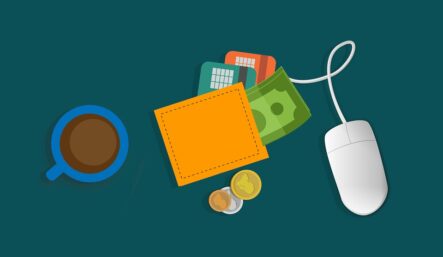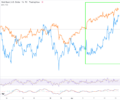Mining is the process of creating new Bitcoins, in which computers solve complex mathematical problems. Mining is the only way to issue cryptocurrency. One of the meanings of the word mining is mining or exploitation of mineral deposits. If we are speaking about Bitcoin, we are dealing with mining of “virtual gold.”
Who and how mines Bitcoins?

People who are engaged in mining are called miners. This word also means specialized devices that are installed in computers for the purpose of Bitcoin mining.
In part, miners can be compared with the participants of torrent trackers, which, by running a special program, enable other users to download movies or music. In the case of Bitcoin, miners maintain the functioning of the payment system, confirm transactions and maintain a consensus about the uniform and unchanged state of the entire network. As a reward, they receive Bitcoins.
The process of mining is to calculate the hash (output data) of the block header in the blockchain. A block includes a hash of the previous block header, a transaction hash, and a random number. When forming a new block, the miner receives a reward – a certain amount of Bitcoins. A lot of miners “fight” for the award at the same time. As a rule, transactions included in a block are considered confirmed after six consecutive blocks have been calculated.
Today, cryptocurrency mining often occurs in specialized data centers, which are also called mining farms. In essence, a farm is a room where there is a certain number of computers with mining software installed. The room has the required temperature or other methods of cooling are used.
Is it profitable to engage in mining?
The economic feasibility of mining is determined by several factors: the cost of electricity, the performance of “hardware”, the current complexity, as well as the market rate of Bitcoin against other currencies. Bitcoin extraction was quite possible at home at the very beginning of its existence. Today it requires very large degrees of computing power. The competition among miners leads to a higher number of miners in the network, resulting in increased mining complexity, and miners receive less profit.
What equipment do you need?
At the very beginning of Bitcoin’s existence, it was possible to mine it on home computers on more or less powerful video cards and ASIC chips. Today it is no longer possible. Modern mining uses expensive specialized devices and chips, the production of which has already turned into a separate multi-million dollar industry.
Does it mean that to do it alone makes no sense? Probably yes, unless you have enough money to get expensive equipment and be able to pay for its maintenance costs. However, this does not mean that you have no chance to earn on mining. There are so-called pools (associations) of miners that attract ordinary users to the process. Pools can include hundreds and thousands of cryptocurrency miners who receive their share of the reward in accordance with the size of the contribution. The network sees such a pool as a single miner producing hundreds of gigahashes per second, although in fact it is one main server that distributes tasks to individual miners. This practice is more effective and brings rewards faster, although it works in small installments.
What reward can I expect?
According to Satoshi Nakamoto’s original Bitcoin technical paper, the reward for finding a new block is halved every four years: in early 2013, it was 50 BTC, then decreased to 25 BTC, and in the summer of 2016, it fell to 12.5 BTC. The next reduction (halving) of the award will take place in 2020.
If you are a member of a pool, the pool receives this award by distributing it among the participants. The difficulty of finding blocks changes every 2016 blocks or about once every two weeks. As the power of the network increases, so does the complexity.



 SP500
SP500 FTSE
FTSE FCE
FCE Nasdaq100
Nasdaq100 Russell2000
Russell2000 Index Nikkei225
Index Nikkei225 DOW 30 (DJI)
DOW 30 (DJI) RTS futures
RTS futures RTSI
RTSI DAX30
DAX30 eBay Inc.
eBay Inc. Google Inc.
Google Inc. IBM Corp.
IBM Corp. Microsoft
Microsoft  Apple
Apple Yandex
Yandex Toyota
Toyota Volkswagen
Volkswagen Facebook
Facebook Tesla
Tesla Twitter
Twitter Hasbro
Hasbro Bitcoin
Bitcoin Litecoin
Litecoin BitcoinCash
BitcoinCash Dash
Dash Ripple
Ripple Ethereum
Ethereum EmerCoin
EmerCoin NameCoin
NameCoin PeerCoin
PeerCoin Monero
Monero ETC/USD
ETC/USD Silver
Silver Platinum
Platinum Palladium
Palladium Copper
Copper Gold
Gold